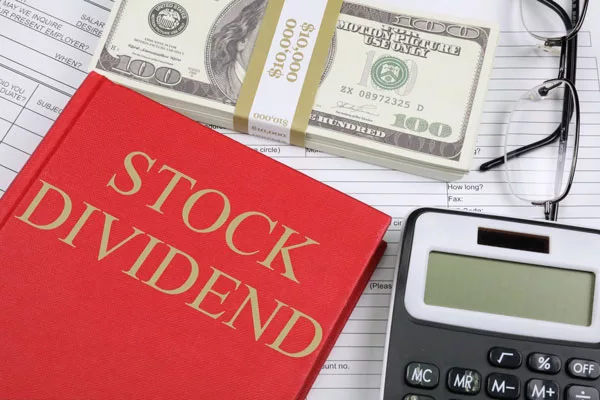Investment Tips for a Volatile Market: Navigating the Ups and Downs
Table of Contents
Introduction
Ah, the world of investments! It’s a bit like a roller coaster, isn’t it? One moment you’re on a thrilling high, and the next, you’re plummeting down faster than you can say “stock market crash.”
But fear not, dear reader, for this guide is here to help you navigate those tricky turns and loops.
Understanding Market Volatility
Market volatility is the financial world’s fancy term for those ups and downs we just talked about. It’s caused by a myriad of factors, from global events to economic indicators.
But here’s a comforting thought: markets have always been volatile. It’s their nature. Just like how the sea has its tides, the market has its fluctuations.
Navigating Market Fluctuations: The Compass You Need
Think of market fluctuations as a dance. Sometimes it’s a waltz, sometimes it’s the cha-cha, and occasionally, it feels like a mosh pit.
The key is not to get swept away. Stay informed, but don’t react impulsively. And remember, it’s always darkest before the dawn.
Risk Management: The Safety Net in a Tricky Market
Risk is an inherent part of investing. But managing that risk? That’s where the magic happens. It’s about assessing how much uncertainty you’re comfortable with and setting up strategies to mitigate potential losses.
Think of it as the seatbelt to your investment vehicle.
Diversification: Don’t Put All Your Eggs in One Basket
Ever heard the saying, “Don’t put all your eggs in one basket?” Well, it’s sage advice in the world of investing. Diversification is all about spreading your investments across different types of assets, so if one goes down, the others might still be up.
The Silver Lining: Opportunities in a Volatile Market
Here’s a secret: downturns can be a golden opportunity. When the market is down, it means assets are on sale. It’s like Black Friday for investors! So, while it might be tempting to panic, sometimes the best move is to shop.
The Role of Financial Advisors
In the grand theatre of investments, financial advisors are the directors. They have the experience, the knowledge, and the tools to guide you through the intricacies of the market. So, when in doubt, seek out their wisdom.
The Digital Age: Starting a Blog in Retirement
Speaking of wisdom, did you know that in 2023, one of the easiest ways to make money online is by starting a blog? And with the power of AI, it’s simpler than ever. So, if you’ve got insights, stories, or even recipes to share, the digital world is your oyster.
Conclusion
Investing in a volatile market might seem daunting, but with the right strategies and mindset, it can be a rewarding journey. Remember to stay informed, seek advice, and most importantly, enjoy the ride.
Frequently Asked Questions
What exactly causes market volatility?
Market volatility can be caused by a variety of factors, including economic data releases, geopolitical events, changes in interest rates, and even natural disasters.
It’s essentially the market’s reaction to unexpected news or events.
How can I protect my investments during a market downturn?
Diversifying your portfolio across different asset classes, sectors, and geographical regions can help.
Also, consider having a mix of defensive stocks, bonds, and other assets that tend to be more stable during downturns.
Is it a good idea to pull out of the market when it’s volatile?
Historically, long-term investors who stay in the market, even during downturns, tend to fare better than those who try to time the market. It’s often said: “It’s not about timing the market, but time in the market.
How do I know if my portfolio is diversified enough?
A financial advisor can help assess your portfolio’s diversification.
Generally, if one asset’s decline severely impacts your entire portfolio, it might be a sign you’re not diversified enough.
Are there any specific sectors that tend to do well during market volatility?
Defensive sectors, like utilities, healthcare, and consumer staples, often hold up better during downturns.
However, it’s essential to research and not generalize for all market conditions.
How can I use risk management in my investment strategy?
Risk management involves assessing how much risk you’re willing to take and setting up strategies to mitigate potential losses.
This can include diversifying, setting stop-loss orders, and regularly reviewing and adjusting your portfolio.
What’s the difference between active and passive investment strategies during volatile times?
Active investing involves making specific investment decisions based on market conditions, aiming to outperform the market.
Passive investing, on the other hand, typically involves tracking a market index and can be a more hands-off approach.
Both have their merits during volatile times, depending on your investment goals and risk tolerance.
I’ve heard of “dollar-cost averaging.” Can it help in a volatile market?
Absolutely! Dollar-cost averaging involves investing a fixed amount regularly, regardless of market conditions.
This can mean you buy more shares when prices are low and fewer when they’re high, potentially reducing the impact of market volatility over time.
How can I stay calm and avoid making impulsive decisions during market downturns?
It’s essential to have a long-term perspective and remember that markets have historically recovered from downturns.
Avoid constantly checking your portfolio, stay informed but not overwhelmed by the news, and consider seeking advice from financial professionals.
With the rise of AI and technology, are there tools that can help me navigate market volatility better?
Yes, many AI-driven tools and platforms can provide real-time insights, predictions, and even automated investment strategies tailored to market conditions.
However, always ensure you understand any tool or platform you use and consider its recommendations as part of a broader strategy.
How does starting a blog in 2023 relate to my investment journey?
Starting a blog can be a way to document your investment journey, share insights, and even monetize your knowledge.
In 2023, with the power of AI, setting up, managing, and even content creation for a blog has become more accessible, making it a potential side income stream or even a platform to share and learn.
How can I ensure my retirement savings aren’t severely affected by market downturns?
Diversification is key. By spreading your investments across different asset classes, you can mitigate the impact of a downturn in any one area.
What’s the difference between diversifying and spreading oneself too thin?
Diversification is about balance. Spreading oneself too thin means not having enough in any one investment to make a meaningful impact. The trick is to find the sweet spot.
How do bonds fare in a volatile market compared to stocks?
Bonds are generally considered less volatile than stocks. They can act as a stabilizing force in your portfolio during market downturns.
Are there any tools or apps that can help me monitor and manage my investments during uncertain times?
Absolutely! There are numerous apps and platforms available that offer real-time tracking, insights, and even AI-driven advice.
I’ve heard about “safe havens” in investing. What are they, and should I consider them?
Safe havens are investments that tend to retain or increase in value during market downturns.
Examples include gold or government bonds. They can be a good addition to a diversified portfolio.







